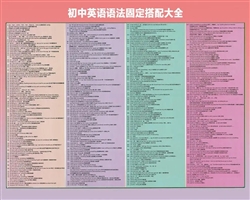加拿大研究人员发现,母乳喂养有助于提高儿童智商和读写能力。研究人员对将近1.4万名儿童进行6年多随访研究,发现母乳喂养的儿童与非母乳喂养者相比,前者平均综合智商比后者高5.9分,读写能力也高于后者。
A new study provides some of the best evidence to date that breast-feeding can make children smarter, an international team of researchers said on Monday.
Children whose mothers breast-fed them longer and did not mix in baby formula scored higher on intelligence tests, the researchers in Canada and Belarus reported.
About half the 14,000 babies were randomly assigned to a group in which prolonged and exclusive breast-feeding by the mother was encouraged at Belarussian hospitals and clinics. The mothers of the other babies received no special encouragement.
Those in the breast-feeding encouragement group were, on average, breast-fed longer than the others and were less likely to have been given formula in a bottle.
At 3 months, 73 percent of the babies in the breast-feeding encouragement group were breast-fed, compared to 60 percent of the other group. At 6 months, it was 50 percent versus 36 percent.
In addition, the group given encouragement was far more likely to give their children only breast milk. The rate was seven times higher, for example, at 3 months.
The children were monitored for about six and a half years.
The children in the group where breast-feeding was encouraged scored about 5 percent higher in IQ tests and did better academically, the researchers found.
Previous studies had indicated brain development and intelligence benefits for breast-fed children.
But researchers have sought to determine whether it was the breast-feeding that did it, or that mothers who prefer to breast-feed their babies may differ from those who do not.
The design of the study - randomly assigning babies to two groups regardless of the mothers' characteristics - was intended to eliminate the confusion.
"Mothers who breast-feed or those who breast-feed longer or most exclusively are different from the mothers who don't," Michael Kramer of McGill University in Montreal and the Montreal Children's Hospital said.
"They tend to be smarter. They tend to be more invested in their babies. They tend to interact with them more closely. They may be the kind of mothers who read to their kids more, who spend more time with their kids, who play with them more," added Kramer, who led the study published in the journal Archives of General Psychiatry.
The researchers measured the differences between the two groups using IQ tests administered by the children's pediatricians and by ratings by their teachers of their school performance in reading, writing, math and other subjects.
- 相关链接:
-
资源说明:
三思网刊三思网刊-生活英语-《母乳喂养 益智儿童!》
 。
。




